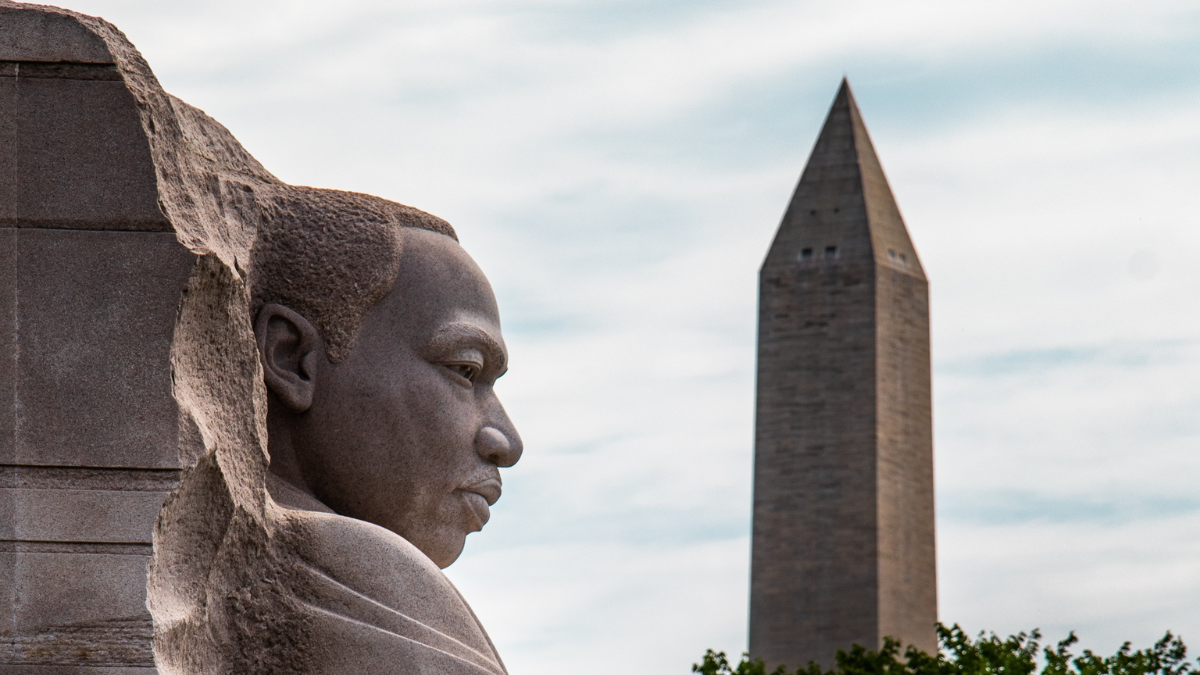

The Life and Legacy of Dr. Martin Luther King, Jr.
King’s urging that ‘unjust laws degrade human beings’ have relevance today on all social issues misaligned from our Creator.
01/15/24
John Stonestreet

Chuck Colson often described the importance of the life and legacy of Dr. Martin Luther King, Jr. In 2009, Chuck, along with fellow authors Dr. Timothy George and Dr. Robert George, cited Dr. King in the Manhattan Declaration, a statement of conscience regarding life, marriage, and religious liberty in the United States.
In 1955, after only a year of pastoring a church in Montgomery, Alabama, Dr. King was selected to lead an organization that boycotted public transportation. This was in response to the arrest of Rosa Parks, who refused to give up her seat for a white passenger on a bus. With a remarkable speaking ability and his advocacy of peaceful protest, Dr. King became a primary voice of the Civil Rights Movement.
Chuck Colson noted three significant aspects of Dr. King’s work. First, Dr. King was deeply influenced by his Christian faith. Though a series of personal failures are now known to be, sadly, serial, the principles from which he spoke and wrote were undeniably Christian. Reflecting on Dr. King’s time in Birmingham, fighting against segregation and for equal job opportunities for African Americans, Chuck noted the following:
During his Birmingham civil rights campaign, Dr. King required every participant to sign a pledge committing to do ten things. The first was to “meditate daily on the teachings and life of Jesus.” Others included the expectation that all participants would “walk and talk in the manner of love, for God is love” and “pray daily to be used by God in order that all men might be free.”
To truly understand Martin Luther King, students must learn about his Christian faith. It was at the heart of what he did.
Recently, sports commentator Chris Broussard and human rights expert Dr. Matt Daniels have produced a video series emphasizing the biblical principles that inspired Dr. King’s life and work. Dr. Daniels is concerned that the Christian underpinnings of Dr. King’s legacy are being lost. You can find this series “Share the Dream” at churchsource.org.
In another commentary, Chuck Colson noted how Dr. King understood divine law as the source of human law. King’s greatest demonstration of this was in his “Letter From a Birmingham Jail,” something Chuck Colson often referred to as “the most important legal document of the twentieth century.” Here’s Chuck:
King defended the transcendent source of the law’s authority. In doing so he took a conservative Christian view of law. In fact, he was perhaps the most eloquent advocate of this viewpoint in his time, as, interestingly, Justice Clarence Thomas may be today.
Writing from a jail cell, King declared that the code of justice is not man’s law: It is God’s law. Imagine a politician making such a comment today.
Based on this belief, that God is the ultimate source of law, Dr. King insisted that any unjust law is, in fact, not a law at all. This was the basis of his view of civil disobedience, something that Christians not only could engage in, but must engage in. Here, again, is Chuck Colson describing King’s view:
“One might well ask,” he wrote, “how can you advocate breaking some laws and obeying others?” The answer “is found in the fact that there are two kinds of laws: just laws … and unjust laws. One has not only a legal but a moral responsibility to obey just laws,” King said, “but conversely, one has a moral responsibility to disobey unjust laws.”
How does one determine whether the law is just or unjust? A just law, King wrote, “squares with the moral law or the law of God. An unjust law … is out of harmony with the moral law.”
Then King quoted Saint Augustine: “An unjust law is no law at all.” He quoted Thomas Aquinas: “An unjust law is a human law not rooted in eternal or natural law.”
If it is true, as Chuck and his co-authors asserted in the Manhattan Declaration that “unjust laws degrade human beings,” then Dr. King’s teachings continue to have relevance for us today, not only on issues of race but on all kinds of areas in which our ideas are misaligned from our Creator. Take a moment today to read Dr. King’s “Letter from a Birmingham Jail.”
For more resources to live like a Christian in this cultural moment, go to breakpoint.org.
Have a Follow-up Question?
Related Content

© Copyright 2020, All Rights Reserved.














